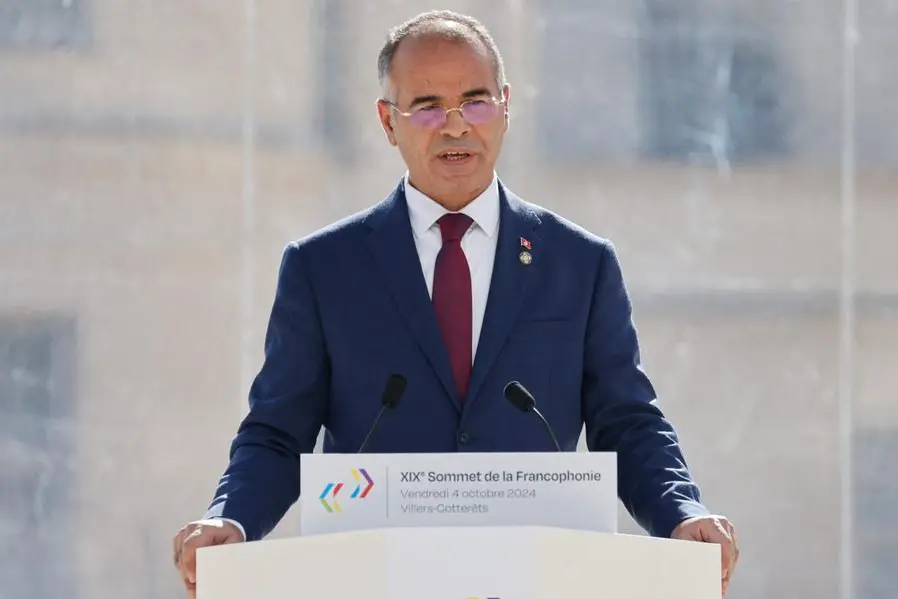PHOTO
Tunisia - Prime Minister Kamel Madouri affirmed that the government's projected growth rate of 3.2% for 2025 is ambitious but achievable, taking into account the significant challenges posed by public financial constraints and balance, the promotion of self-reliance principles, as well as external factors and the impact of climate change.
Answering MPs' questions during a debate on the draft state budget and economic budget for 2025 at the Bardo Palace on Sunday, Madouri said that this growth rate is realistic and achievable, supported by a number of favourable factors for its achievement.
The prime minister outlined these factors, highlighting political and institutional stability, the continuous improvement of the national economy as reflected in most economic indicators, the transition from economic resilience to growth, efforts to combat corruption, and the resolution of issues within the phosphate sector and stalled public projects.
Madouri noted that efforts have long been underway to boost public investment momentum, with numerous legal and procedural measures aimed at unblocking major stalled projects, totalling 1,126, many of which have been addressed through regional and sectoral committees, and work is ongoing on the remaining projects.
He highlighted the preparation of strategic projects, supported by Decree 497 of 2024, which provides a framework for efficient contracting, allowing strategic projects to be implemented without the need for restrictive public procurement procedures.
He also mentioned new measures to support public works companies and administrative contractors, as well as the finalisation of a decree revising the public procurement system.
According to Madouri, this overhaul will strengthen the role of public procurement in achieving development goals by providing greater flexibility in the tendering, execution and monitoring processes to ensure the effectiveness of public procurement.
The Prime Minister stated that these reforms will also strengthen the economic fabric, in particular by supporting artisans, communitarian enterprises, small and medium-sized enterprises, start-ups and the promotion of local products.
With regard to the phosphate sector, Madouri stressed that increasing production and solving the problems of transport and processing plants are national priorities.
He praised the lifting of the sit-ins at the Redeyef processing plant, which will allow production to gradually resume.
He announced that projects aimed at the environmental rehabilitation of industrial units and the modernisation of beneficiation plants will be closely monitored, with approximately TND 93 million to be allocated in 2024 for the modernisation of phosphate transport equipment and other necessary purchases.
Gafsa Phosphate Company has also developed a work plan for 2025-2030 to restart the Mdhilla 2 plant, complete the Oum Lakhcheb beneficiation plant and launch a second production line at this plant with an annual capacity of 1.6 million tonnes.
In addition, Madouri confirmed the government's intention to finalise a comprehensive legislative project to address investment barriers, with the aim of creating a transparent and stable environment that enables economic operators to make well-informed investment decisions.
This project will simplify and reduce procedures, encourage entrepreneurship and improve investment governance by increasing the efficiency of government institutions involved in investment supervision.
Madouri also underlined the government's commitment to the digital transformation of administrative services, describing it as a guarantee of quality and an essential measure to combat corruption and improve the business environment.
The Prime Minister announced the launch of an initiative to streamline and digitise administrative procedures through a national e-services portal, prioritising high-demand services for public users, including inter-structural digital connectivity and the rapid completion of major sector-specific digital projects. This also includes the establishment of a digital platform for investors and the implementation of a paperless process for the establishment of companies and enterprises.
He added that integrating digital transformation is a priority in various sectors, especially in service areas such as health, transport, education, higher education and tourism.
He highlighted the government's aim to extend e-services to Tunisians abroad through a digital consulate, facilitating access to administrative services regardless of location.
Prime Minister Madouri also pointed to the government's focus on improving the competitiveness of businesses by providing the necessary support, developing logistics services, channelling private sector investment into promising sectors, and improving access to financing and essential guarantees.
Madouri highlighted efforts to speed up the creation of communitarian enterprises, which he saw as a development alternative with promising economic and social prospects, providing a source of dignified employment for various social groups.
The Prime Minister pointed out that changes are being made to the law on public agricultural land to allow communitarian enterprises and the unemployed to use this land.
Presenting the Finance Law 2025, he underlined the State's commitment to mobilise resources and efforts to improve the efficiency of public services and the quality of services provided to citizens.
He noted that this plan focuses on addressing economic, social and climate impacts, ensuring fiscal sustainability, and supporting the success of structural changes in the national economy, with particular emphasis on improving state revenue collection, increasing tax compliance, and engaging the informal sector.
The draft state budget has allocated TND 10,615 million for regional development, which is considered a strategic lever for economic and social growth, attracting private investment to the regions and prioritising the completion of ongoing projects, accelerating public initiatives, resolving stalled projects and expediting projects funded by targeted foreign loans, as detailed by the Prime Minister.
© Tap 2022 Provided by SyndiGate Media Inc. (Syndigate.info).




















